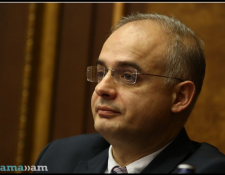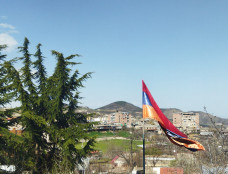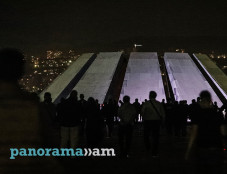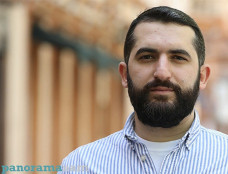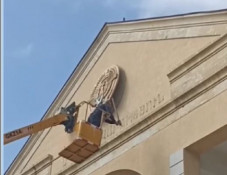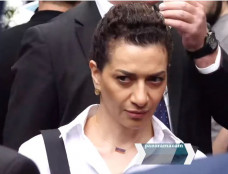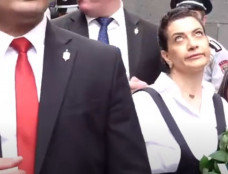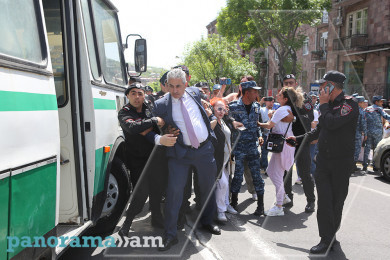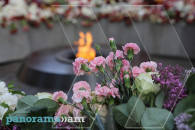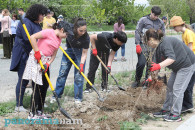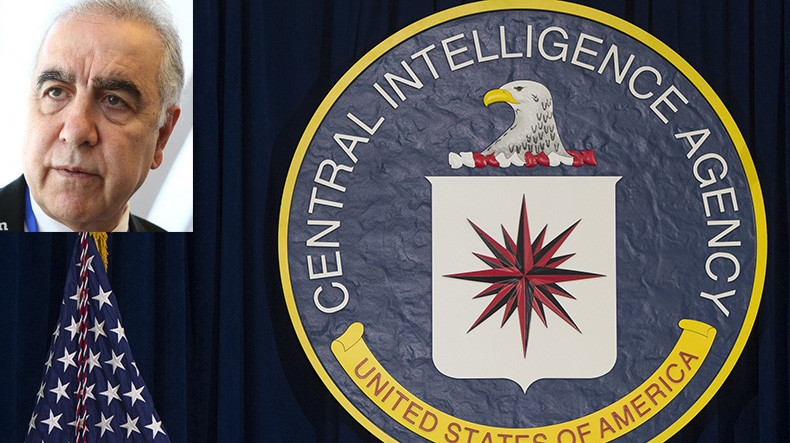
A declassified top secret CIA report on the Nagorno-Karabakh conflict
By Harut Sassounian
Publisher, The California Courier
A 48-page Central Intelligence Agency Top Secret Report, prepared in August 1988 and made public in 2012 with some deletions, is titled “Unrest in the Caucasus and the Challenge of Nationalism.” Despite the passage of time, the Report includes an interesting analysis of the Artsakh (Nagorno-Karabakh) conflict from the perspective of U.S. intelligence services.
The CIA analyst, in the introduction of his Report, traced the origins of the Artsakh conflict: “Enmity between Armenian and Azeri factions has existed for hundreds of years, and the 1920s settlement subordinating Nagorno-Karabakh -- Armenia’s cultural and religious center -- to the Azerbaijan Republic has been a continual, albeit long-muted, source of Armenian frustration and concern. Azeri animosity toward the Armenians has been intensified by political, economic, and demographic trends that have adversely affected the political status of Azeris and increased the gap in living standards between Azerbaijan and Armenia. In particular, the rapid expansion of Azerbaijan’s young adult population has put enormous strain on the Republic’s capacity to provide adequate jobs, housing, and education. Azeri frustration has found an outlet in attacks on Armenians.”
The unnamed CIA analyst reported that a split within the Politburo on how to handle the Artsakh crisis made the situation worse. Second Secretary Ligachev and KGB Chief Chebrikov were the hardliners who vehemently opposed the separation of Artsakh from Azerbaijan. They disagreed with Gorbachev’s reforms and blamed foreign powers for inciting unrest inside the Soviet Union.
When two prominent Armenian writers, Silva Kaputikyan and Zori Balayan, met with Gorbachev in Moscow in February 1988, they reported that he was well briefed and assured them that he wanted a “just solution.” He acknowledged “the peaceful nature of the [Armenian] demonstrations and emphasized his personal sympathy with the desire to reunite Nagorno-Karabakh with Armenia….”
Upon the return of the Armenian envoys to Yerevan, in a radio broadcast on February 27, 1988, Kaputikyan called for Armenians to trust Gorbachev. “He knows about and understands our problem and wants to resolve it personally…. We must do our utmost to ensure that no harm” is done to him, Kaputikyan announced.
Regarding Soviet concerns about foreign, particularly Armenian-American interference in domestic Soviet turmoil, the CIA analyst reported: “The recent unrest appears to have made Soviet officials more fearful about the role of foreign actors in the Nagorno-Karabakh problem. Of the approximately 5.5 million people in the world today who speak Armenian, about 60% live outside the Soviet Armenian republic, about 1.4 million elsewhere in the USSR, and 2 million abroad. So far, Armenian emigres -- most of whom see Turkey much more than Russia as the historic oppressor of their nation -- have not been actively involved in pushing for change in the Soviet system or in Soviet policies. Moscow worries that diaspora attitudes could turn sharply critical of the USSR and that Armenians in the United States, particularly, could grow into a powerful anti-Soviet pressure group. Soviet officials are wary of the large concentration of Armenians in California and New York, states with large electoral votes that have been closely contested in previous presidential elections.”
In a footnote at the end of the previous paragraph, the CIA analyst specified that “the United States hosts at least 600,000 Armenians. About 90 percent of America’s Soviet Armenian immigrants came to California. Los Angeles -- with 100,000 -- has the largest community of Armenians outside Yerevan. The New York City region has about 70,000 Armenians, mostly from Lebanon and Iran.”
The CIA analyst added: “Moscow may be concerned that foreign Armenian terrorist groups like the Armenian Secret Army for the Liberation of Armenia (ASALA) could turn against Soviet targets -- although we have no evidence that this is the case. Hitherto, the USSR has figured very little in ASALA’s blending of armed struggle with Marxist ideology; the dominant faction of ASALA considers Soviet Armenia as liberated territory and the group concentrates its attacks exclusively on Turkish officials. In fact, ASALA eventually would like to see ‘the Armenian provinces’ now located in Turkey and possibly Iraq [?] reattach themselves to the Soviet Armenian core. Furthermore, ASALA is now in a quiet phase, and its leader was assassinated on 28 April [1988]. Nevertheless, ASALA in early April did send a moderately worded appeal to Gorbachev supporting the reunification of Karabakh with Armenia, while characteristically stressing that Armenia is an integral part of the USSR and seeks only to rectify the border, not to pursue claims against Moscow.”
Finally, the CIA analyst explained the position of Turkey on the Karabakh conflict: “Although the Turkish Government has not explicitly sided with Azerbaijan, Turkey’s fear of resurgent Armenian nationalism makes Ankara sympathetic to Baku. When the crisis broke in February [1988], Turkish Government spokesmen indicated publicly that international agreements entitle Ankara to a voice in the crisis, an apparent reference to the 1921 treaty between the USSR and Turkey that led to the shift of Nagorno-Karabakh and Nakhichevan to Azerbaijan. Turkey no doubt especially feared that transferring Nagorno-Karabakh to Armenia would whet Armenian appetites and would lead to increased pressure to change the status of Nakhichevan and to acquire former Armenian regions in Turkey. Turkish officials probably also noted that some Armenian expansionist demands for a ‘Greater Armenia’ were based on historic claims rather than on the ethnic composition of the affected territories. Thus, some Armenians have demanded the return of Nakhichevan, even though Azeris now greatly outnumber Armenians in this region. Using such historical criteria, could give Armenians a claim even on some border parts of Turkey where only 50,000 Armenians now live.”
The CIA analyst concluded his Report by outlining five options the USSR had for the resolution of the Artsakh conflict:
1) “Sticking with the Status Quo”
2) “Making Further Economic Concessions” to Armenians
3) “Enhancing Autonomy of Nagorno-Karabakh Within Azerbaijan”
4) Expanding “Extraterritorial Native Cultural Institutions”
5) “Reconfiguration of Nagorno-Karabakh” by splitting it between Armenia and Azerbaijan.
Newsfeed
Videos





